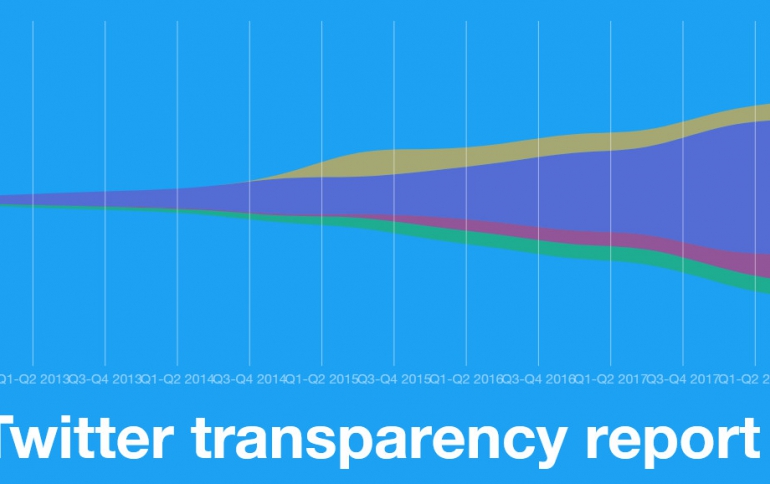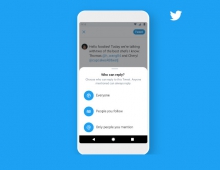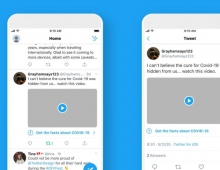
Twitter Uses Software to Tackle Online Abuse
Twitter says its proprietary technology is steadily reducing the burden on people to report to the company, with more than 50% of Tweets the company takes action on for abuse are now being surfaced using technology.
Twitter has released its biannual Twitter Transparency Report, which the company has been producing since July 2012 to share global trends across a number of areas of the enforcement on Twitter, including the Twitter Rules and legal requests the company receives.
The latest report is incorporating data and insights regarding impersonation policy enforcement, as well as state-backed information operations datasets that were previously released to the public to empower research and awareness of these campaigns.
Twitter's transparency report came a day after the company said it would ban political advertising on its platform next month as it and peers including Facebook also face pressure to stop carrying ads that spread false information that could steer elections.
Here are key highlights from Twitter's work, which relate to the latest reporting period (January 1 to June 30, 2019):
- More than 50% of Tweets we take action on for abuse are now proactively surfaced using technology, rather than relying on reports to Twitter;
- 105% increase in accounts actioned by Twitter (locked or suspended for violating the Twitter Rules);
- Continuing a year-on-year trend, a 30% decrease in accounts suspended for the promotion of terrorism; and
- 67% more global legal demands, originating from 49 different countries.
Twitter says it saw a 48% increase in accounts reported for potential violations of its private information policies. Twitter suspended 119% more accounts than the previous reporting period. This increase may be attributed to the launch of improvements to the company's reporting flow that make it easier to report private information, as well as changes to Twitter's internal enforcement processes which permit bystanders to report potential private information violations for review.
Twitter also saw a 37% increase in accounts reported for potential violations of its sensitive media policies. The company actioned 41% more account.
There was also a 48% increase in accounts reported for potential violations of Twitter's hateful conduct policies. The company actioned 133% more accounts compared to the last reporting period.
Twitter saw a 22% increase in accounts reported for potential violations of our abuse policies. They took action on 68% more accounts compared to the last reporting period.
Impersonation is when an account poses as another person, brand, or organization in a confusing or deceptive manner and is prohibited by the Twitter Rules. During this reporting period, Twitter took enforcement action on 124,339 accounts for violating our impersonation policy.
Twitter also said that its anti-spam challenges — where we ask people to provide a phone number or email address or fill in a ReCAPTCHA code to verify there is a human behind an account — fell by nearly 50%.
According to the transparency report, a total of 115,861 accounts were suspended for violations related to the promotion of terrorism this reporting period, down 30% from the previous reporting period. Of those suspensions, 87% consisted of accounts we proactively flagged using internal, proprietary removal tools.
During this reporting period, Twitter suspended a total of 244,188 accounts for violations related to child sexual exploitation. Of the unique accounts suspended, 91% were surfaced by a combination of technology solutions (including PhotoDNA and internal, proprietary tools).
In addition to enforcing the Twitter Rules, the company also may take action in response to legal requests.
Twitter received a 101% increase in DMCA takedown notices since our last report. However, many were incomplete or not actionable.
The company also saw a 39% increase in the total number of trademark notices received since its last report.
Information requests from the United States continue to make up the highest percentage of legal requests for account information. During this reporting period, 29% of all global requests for account information originated within the United States.
Compared to the previous reporting period, Twitter received roughly 67% more legal requests to remove content, originating from 49 different countries. Of the requests received, 80% of the volume originated from Japan, Russia, and Turkey. Twitter withheld content in a country 2,457 times, at either an account or Tweet level.





















